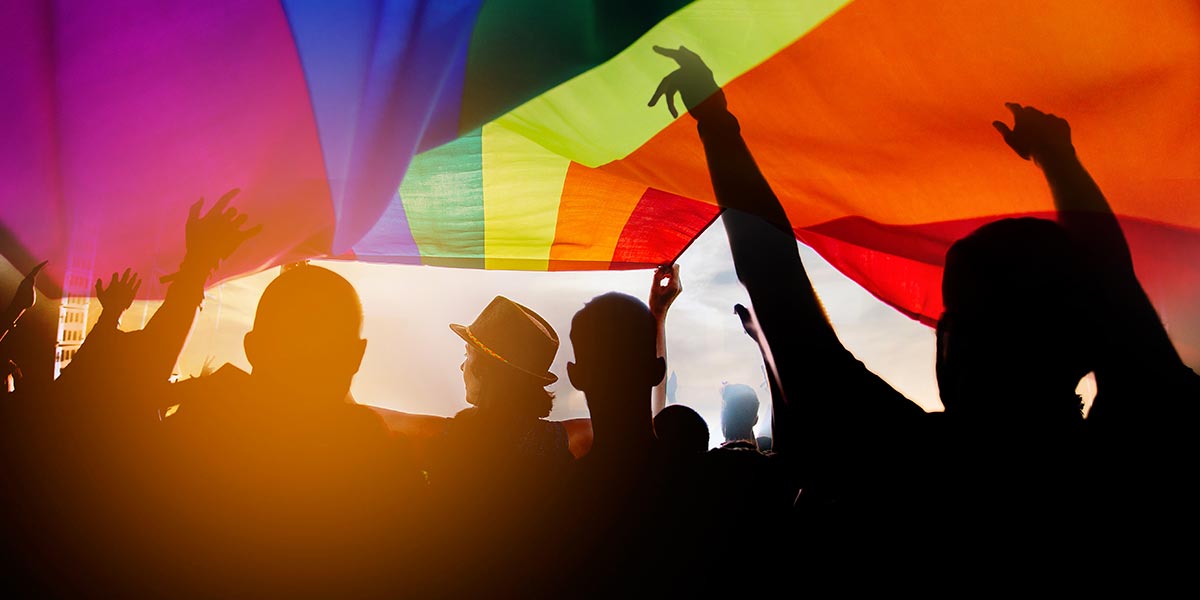Intersectionality: What does it mean and why does it matter?

If you’ve been staying on top of current affairs, you’ll certainly have come across the term “intersectionality”. Over the past few years, taking an intersectional approach to issues surrounding social justice has become the recommended way of looking at a variety of societal matters.
But what does “intersectional” mean, and why are scholars and activists advocating for the use of this concept?
The origins of the term
Devised by professor Kimberlé Crenshaw in 1989, intersectionality only recently entered the vocabulary of the mainstream. Crenshaw used the term to explain how individual characteristics like class, race, gender and sexuality all have a role to play in the discrimination and oppression that a person may experience in their life. Put simply, intersectionality suggests that all oppression is linked to the ways in which these characteristics overlap and intersect with one another.
While the use of intersectionality was confined to academic circles for most of its existence, it was added to the Oxford English Dictionary in 2015, as the term became more frequently used with reference to women’s issues. This was also the time during which intersectionality began drawing the ire of more conservative groups, not unlike the way in which the term “woke” is often scrutinised by the right. To these groups, intersectionality doesn’t mean that issues are often interconnected, but rather that marginalised groups are now getting special treatment at the expense of groups that have enjoyed more privilege due to their specific individual characteristics.
Says David French in a Vox interview about intersectionality: “An African American man is going to experience the world differently than an African American woman. Somebody who is LGBT is going to experience the world differently than somebody who’s straight. Somebody who’s LGBT and African American is going to experience the world differently than somebody who’s LGBT and Latina. It’s sort of this commonsense notion that different categories of people have different kinds of experience.”
Juxtapose this with conservative pundit Ben Shapiro’s comments on intersectionality, calling it “a form of identity politics in which the value of your opinion depends on how many victim groups you belong to. At the bottom of the totem pole is the person everybody loves to hate: the straight white male.”
Why is intersectionality a critical tool in understanding the world today?
Contrary to what many narratives about intersectionality would like people to believe, an intersectional approach to social issues doesn’t dictate that we turn current power structures on their head (even if it is high time that happens, if the state of the world is anything to go by). Instead, intersectionality proposes a different way of looking at current inequities by taking every factor that may influence discrimination into account. When we are able to fully observe and acknowledge power imbalances, we can start at looking how said power imbalances can be done away with.
The LGBTQI+ community can benefit immensely from an intersectional approach to the issues affecting them. For example, a report titled, “We’re queer and we’re here!” released by the Centre for Risk Analysis at the South African Institute of Race Relations stated that four out of ten of an estimated 800 000 LGBTQIA+ South Africans know of someone that has been murdered for being or suspected of being LGBT. Furthermore, Black respondents were almost twice as likely to know of someone murdered because of their sexuality or gender identity than white respondents.
While it is obvious from these statistics that a queer person’s sexual orientation may certainly influence their safety, it is also crystal clear that Black respondents had a wholly different experience of violence than white respondents did. This is a direct example of how intersecting and overlapping characteristics have a role to play in the day-to-day instances of discrimination that the queer community faces.
Intersectionality is important because it recognises the whole person, and considers all the ways in which their life may be more difficult than someone else’s. Once we understand this, we may be able to better address these difficulties. While an intersectional approach to matters of social justice doesn’t eliminate issues altogether, looking at the world through this lens may well alert us to ways in which we can make it better for everyone, regardless of their individual characteristics.
Leave a Reply